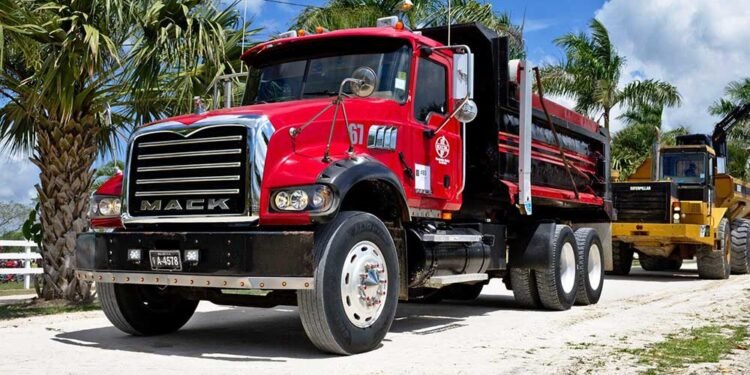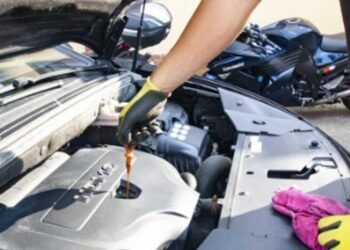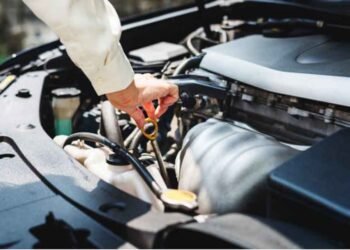Commercial trucks are the backbone of the transportation industry, delivering goods across vast distances.
However, these workhorses are prone to various mechanical issues due to their heavy usage. Regular maintenance and timely repairs are essential to keep these vehicles running smoothly.
This article aims to shed light on common commercial truck repair problems and how to address them effectively.
1. Engine Overheating
Engine overheating is a frequent problem in commercial trucks, often caused by coolant leaks, radiator issues, or malfunctioning water pumps. When an engine overheats, it can lead to severe damage, including warped cylinder heads and engine failure.
To fix engine overheating, start by checking the coolant levels and topping them up if necessary. Inspect the radiator and hoses for leaks or blockages.
If the water pump is faulty, it may need to be replaced. Refer to caterpillar truck engine manuals for specific troubleshooting steps and maintenance tips tailored to your engine model.
2. Brake System Failures
Commercial trucks rely heavily on their brake systems, which are prone to wear and tear. Common brake issues include worn brake pads, air leaks in the brake lines, and malfunctioning brake calipers.
Regularly inspect the brake pads and replace them when they become thin. Check for air leaks in the brake lines and repair or replace any damaged sections.
Ensure the brake calipers function correctly and adjust or replace them if necessary. Proper brake maintenance is crucial for safety and compliance with transportation regulations. To ensure the longevity and reliability of the brake system, consider visiting a commercial body shop near me, for proper inspection. Professionals can ensure your vehicle stays in optimal condition, and even offer advice to keep your vehicle safe and compliant with regulations.
3. Transmission Problems
Transmission issues can manifest as difficulty in shifting gears, slipping gears, or unusual noises. These problems can result from low transmission fluid levels, worn-out clutch components, or internal transmission damage.
Start by checking the transmission fluid levels and top up if needed. Inspect the clutch components for wear and replace them if necessary. If the transmission issues persist, it may be time for a professional commercial truck and trailer repair. Regular transmission maintenance can prevent a costly commercial truck repair down the line.
4. Electrical System Malfunctions
Commercial trucks have complex electrical systems that control everything from lighting to engine management. Common electrical issues include faulty wiring, dead batteries, and malfunctioning alternators.
Begin by inspecting the wiring for any visible damage or loose connections. Test the battery and alternator to ensure they are functioning correctly.
Replace faulty components and consider investing in a high-quality battery and alternator to improve reliability. Regularly check and maintain the electrical system to avoid unexpected breakdowns.
5. Tire Wear and Damage
Tires are subject to constant wear and tear, leading to uneven tread wear, punctures, and blowouts. Poor alignment, underinflation, and overloading can exacerbate these problems.
Regularly inspect the tires for signs of uneven wear and ensure they are properly inflated. Rotate the tires to promote even wear and extend their lifespan.
If a tire is damaged, repair or replace it promptly to avoid safety hazards. Proper tire maintenance not only ensures safety but also improves fuel efficiency. A commercial truck tire repair service can help with any tire issues and provide recommendations for the best tires for your specific trucking needs.
6. Suspension System Issues
The suspension system of a commercial truck plays a vital role in ensuring a smooth ride and optimal stability. It serves as the backbone that absorbs the bumps and jolts of the road, safeguarding both the vehicle and its cargo.
Common issues encountered with truck suspensions often stem from wear and tear, such as:
- worn-out shock absorbers
- broken leaf springs
- misaligned axles
When assessing the condition of the suspension components, it is crucial to pay close attention to the shock absorbers. If these essential parts show signs of leakage or wear, prompt replacement is necessary to maintain the vehicle’s performance.
Similarly, inspecting the leaf springs for any cracks or breaks is imperative. Any damaged springs should be promptly replaced to ensure the truck’s suspension functions optimally.
7. Fuel System Contamination
Contamination can sneak into the fuel system from dirty fuel bits. Condensation brings in water, and sediment clogs filters. When these nasties mess with the system, the engine’s performance takes a hit. Think:
- misfires
- lower combustion efficiency
- potential issues
To tackle these woes, it’s crucial to stay on top of maintenance. Regularly checking and changing fuel filters is a smart move to prevent clogs. Opting for high-quality fuel with good filtration ratings can reduce contamination risks. Using system-cleaning fuel additives can also help maintain its health.
If you notice water in the fuel, don’t wait around. Act quickly to prevent damage. Emptying the tank and giving it a good clean will clear out the water and gunk. By sticking to a routine focused on keeping the fuel system clean and reliable, drivers can ensure their vehicles perform well and last.
8. Cooling System Failures
The cooling system is essential for regulating engine temperature. Common issues include:
- coolant leaks
- faulty thermostats
- clogged radiators
If the engine is overheating, it can cause serious damage to internal components. Check for coolant leaks and repair any damaged hoses or connections. Test the thermostat to ensure it opens and closes at the correct temperature.
If the radiator is clogged, flush it to remove any blockages. Regular cooling system maintenance prevents overheating and extends the engine’s life.
9. Exhaust System Problems
Problems with the exhaust system can cause more noise. They can also reduce engine performance and cause visible emissions. These issues are often caused by:
- leaks
- damaged mufflers
- clogged catalytic converters
A damaged exhaust system can also affect fuel efficiency and emissions, leading to failed emissions tests. Inspect the exhaust system for leaks and repair or replace any damaged sections.
Make sure the muffler and catalytic converter work well. Replace them if needed. Regular exhaust system maintenance improves engine efficiency and reduces harmful emissions.
Keeping Your Fleet Rolling with Top Commercial Truck Repair Services
Commercial truck repair is a key part of managing your fleet to keep those wheels rolling smoothly. Tackling issues like engine overheating, brake failures, and transmission glitches is crucial. It helps avoid breakdowns and saves time and cash.
Knowing how to deal with commercial truck & trailer repair can make your life easier in the long haul. So, maintain your fleet well for better reliability, safety, and efficiency.
And hey, if this article hits the spot, swing by our blog for more cool reads!












